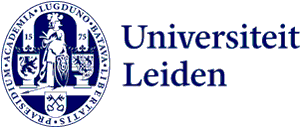Archaeology & Society
Changing the future, by understanding the past. Join Archaeology & Society and broaden your horizon!
Why is archaeology still relevant today? This track lets you better understand and actively improve our current and future societies.
Due to the selected cookie settings, we cannot show this video here.
Watch the video on the original website orThe track in a nutshell
- Engage with current issues related to politics, environment, heritage and scientific research from Archaeology’s multidisciplinary perspective
- Focus on societal outreach programs alongside recent and ongoing archaeological projects from across the world
- Train your practical and creative skills through flexible internships and teamwork and gain new skillsets for heritage management and applied knowledge sharing
- Go beyond the regular Leiden Archaeology curriculum, with focus on sites and projects from Asia and East Africa
Bachelor’s students of all faculties are welcome to apply!
Practicalities
- Location: Leiden
- Language: English
- Credits: 30 EC
Gotten curious? Take a look at our curriculum.

Daphne de Vos
Why did Daphne de Vos choose to follow the honours track?

"I chose to follow the honours track, because I wanted to do and learn more than was provided in the regular courses. Next to that, my regular studies went well and I was looking for a challenge."
Internships
"What I like most about the honours track are the two internships, that can focus on entirely different subjects. For my research internship I studied a collection of prehistoric flint artefacts from the Vlootbeek Valley in Limburg. I wrote reports about a Neolithic hand axe and fractures on Neolithic arrowheads for the National Museum of Antiquities. It is really nice that you can already contribute to a research project in your first year."
Involving the public
"The idea of the social internship is to involve the public in archaeology. For my social internship I am helping with the Non-Professional Archaeological Photographs (NPAPH) project . It involves studying non-professional photographs of objects or archaeological sites made during the ‘60s and ‘70s in the Near East. Determining the location at which a photograph is taken is challenging, as it may depend on a blurry building somewhere in the distance. After having been described, the photographs will be made accessible to the public through an online database."
Dreaming of a PhD
"I would love to do research and dream of doing a PhD. I am especially interested in the prehistory of North-Western Europe, so I would like to work in that field. I think the honours track can help realising a job in research, as you gain experience in different fields through the internships. You also meet with people that have a lot of experience in those fields. In short, I’m thoroughly enjoying the honours programme."

